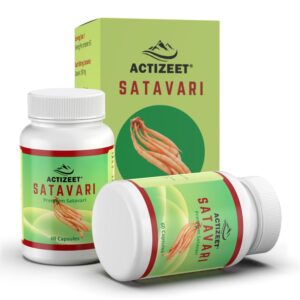Ashwagandha has been used for centuries as a natural remedy to help with stress, anxiety, and overall well-being. But, Can ashwagandha be taken daily? In this article, we explore the best time to take ashwagandha, the amount you should consume, and any potential side effects that could occur from daily use. Read on to find out more about this incredible herbal supplement!
Table of Contents
ToggleWhat is Ashwagandha?
Ashwagandha is an herb that has been used in India for centuries. The name Ashwagandha comes from the Sanskrit words ashva, meaning “horse,” and gandha, meaning “smell.” Ashwagandha is sometimes called Indian ginseng or winter cherry.
The roots and leaves of the ashwagandha plant are used to make medicine. Ashwagandha has a long history of use in Ayurvedic medicine. It is commonly used as a tonic and adaptogen, which is a substance that helps the body cope with stress.
Ashwagandha is available as a supplement in many different forms, including powder, capsule, tablet, extract, and tea. It can also be found in some beauty products, such as soaps and lotions.
The active ingredients in ashwagandha are thought to be alkaloids and steroidal lactones. These substances are thought to have antioxidant and anti-inflammatory effects.
Benefits of Ashwagandha
Ashwagandha is an herb that has been used in traditional Indian medicine for centuries. It is also known as Withania somnifera or winter cherry. Ashwagandha is a small shrub with yellow flowers and dark berries. The roots and leaves of the plant are used to make medicine. Ashwagandha is most commonly used for stress and anxiety. It is thought to help the body adapt to stressful situations and improve overall well-being. Ashwagandha may also help improve cognitive function and reduce inflammation.
Additionally, ashwagandha is sometimes used as a natural treatment for sexual dysfunction and fertility issues. There is some scientific evidence to support the use of ashwagandha for stress and anxiety. One study showed that it helped reduce stress in people with chronic stress, while another found that it improved sleep quality in people with insomnia. However, more research is needed to confirm these effects.
Ashwagandha is generally considered safe when taken in moderation, but it can cause side effects such as stomach upset, diarrhea, and vomiting in some people.
Also, Read Ashwagandha Benefits
How to take Ashwagandha
If you’re interested in taking ashwagandha for its potential health benefits, it’s important to know how to take it correctly. Ashwagandha is available in many different forms, including powders, capsules, and tinctures. It’s also possible to make tea out of the dried herb.
The most important thing to remember when taking ashwagandha is to start with a low dose and increase gradually as needed. This will help your body get used to the herb and minimize the risk of side effects. It’s also a good idea to take ashwagandha with food.
When it comes to powder, the general rule of thumb is to take 1-2 grams per day. If you’re using capsules or tinctures, follow the instructions on the product label. For those making tea, 1 teaspoon of dried herb per cup of boiling water is typically used. It’s best to steep for 10-15 minutes before drinking.
How long can you take ashwagandha?
How long can you take ashwagandha? This is a question that does not have a straightforward answer. While there are no known side effects of taking this herb, it is always best to consult with a healthcare professional before starting any new supplement regimen.
Ashwagandha has been used in Ayurvedic medicine for centuries and is thought to be safe when taken in recommended doses. The general consensus is that it is best to take ashwagandha for a period of 3-6 months, after which you can reassess your need for it.
How much ashwagandha should you take per day?
How much ashwagandha should you take per day? This is a question that does not have a straightforward answer, as it depends on various factors such as your age, weight, and health condition. The general rule of thumb is to start with a lower dose and increase it gradually over time.
A typical dose of ashwagandha ranges from 500 mg to 3 grams per day. For most people, taking 1-2 grams of ashwagandha per day is sufficient to experience its benefits.
Best time to take Ashwagandha
There is some debate surrounding the best time to take ashwagandha. Some people believe that it is best to take the herb in the morning, while others believe that taking it at night is more effective.
Ultimately, the best time to take ashwagandha will depend on your individual needs and preferences. If you are looking for an energy boost, then taking ashwagandha in the morning may be your best bet. The herb is known for its ability to increase energy levels and improve stamina. If you find that you are struggling to get through the day, then taking ashwagandha in the morning can help give you the boost you need.
On the other hand, if you are looking for a way to wind down at night, then taking ashwagandha before bed may be more beneficial. The herb can help to relax the mind and body, making it easier to fall asleep. If you have trouble sleeping, then taking ashwagandha before bed may help you get a better night’s rest.
Ultimately, the best time to take ashwagandha will depend on your individual needs and preferences. Experiment with taking the herb at different times of the day to see what works best for you.
Can ashwagandha be taken daily?
Yes, ashwagandha can be taken daily. This herb is a popular choice for those looking for a natural way to boost their energy levels and improve their overall health. Ashwagandha has been used in traditional Indian medicine for centuries and is now gaining popularity in the Western world as well. There are many different ways to take ashwagandha, including capsules, powders, and tinctures.
The most important thing is to find a quality product from a reputable source. Start with a low dose and increase gradually as needed. Be sure to consult with your healthcare provider before taking any supplements, especially if you have any underlying health conditions.
Who should avoid taking Ashwagandha
If you are pregnant or breastfeeding, you should avoid taking Ashwagandha. Additionally, if you have any autoimmune diseases (such as rheumatoid arthritis, lupus, multiple sclerosis, etc.), you should avoid taking Ashwagandha. If you take any medications that suppress the immune system (such as steroids, chemotherapy drugs, etc.), you should avoid taking Ashwagandha. Finally, if you have any history of cancer, you should avoid taking Ashwagandha.
Conclusion
When it comes to taking ashwagandha, you have many options. You can take it in a supplement form, mix it with foods and drinks, or even make your own tea. If you are looking for natural remedies for anxiety and stress relief, ashwagandha may be a great choice. Just be sure to talk to your doctor before starting any new health regimen. Keep in mind that the safety of any product or supplement is determined by both its individual ingredients and its overall quality. With proper guidance and research, you can find an ashwagandha supplement that works best for your body and lifestyle.
Best Ashwagandha Capsules
-
Rated 4.68 out of 5
₹1,200.00Original price was: ₹1,200.00.₹900.00Current price is: ₹900.00. Incl. GST ADD TO CART Buy Now -
Rated 4.82 out of 5
₹2,400.00Original price was: ₹2,400.00.₹1,600.00Current price is: ₹1,600.00. Incl. GST ADD TO CART Buy Now -
Rated 4.73 out of 5
₹1,200.00Original price was: ₹1,200.00.₹900.00Current price is: ₹900.00. Incl. GST ADD TO CART Buy Now -
Rated 4.75 out of 5
₹2,400.00Original price was: ₹2,400.00.₹1,600.00Current price is: ₹1,600.00. Incl. GST ADD TO CART Buy Now -
Rated 4.67 out of 5
₹3,600.00Original price was: ₹3,600.00.₹2,100.00Current price is: ₹2,100.00. Incl. GST ADD TO CART Buy Now -
Rated 4.78 out of 5
₹3,600.00Original price was: ₹3,600.00.₹2,100.00Current price is: ₹2,100.00. Incl. GST ADD TO CART Buy Now
Related Products
-
Himalayan Shilajit, Pure shilajit, Shilajit, SHUDDH SURYA TAPI SHILAJIT
Rated 4.74 out of 5₹4,950.00Original price was: ₹4,950.00.₹3,950.00Current price is: ₹3,950.00. Incl. GST ADD TO CART Buy Now -
Rated 4.86 out of 5
₹2,400.00Original price was: ₹2,400.00.₹1,600.00Current price is: ₹1,600.00. Incl. GST ADD TO CART Buy Now -
Rated 4.82 out of 5
₹2,400.00Original price was: ₹2,400.00.₹1,600.00Current price is: ₹1,600.00. Incl. GST ADD TO CART Buy Now -
Rated 4.84 out of 5
₹2,400.00Original price was: ₹2,400.00.₹1,600.00Current price is: ₹1,600.00. Incl. GST ADD TO CART Buy Now
-
Rated 4.00 out of 5
₹2,400.00Original price was: ₹2,400.00.₹1,600.00Current price is: ₹1,600.00. Incl. GST ADD TO CART Buy Now -
Rated 4.80 out of 5
₹2,400.00Original price was: ₹2,400.00.₹1,600.00Current price is: ₹1,600.00. Incl. GST ADD TO CART Buy Now -
Rated 4.71 out of 5
₹2,400.00Original price was: ₹2,400.00.₹1,600.00Current price is: ₹1,600.00. Incl. GST ADD TO CART Buy Now -
Rated 0 out of 5
₹2,400.00Original price was: ₹2,400.00.₹1,600.00Current price is: ₹1,600.00. Incl. GST ADD TO CART Buy Now
Related posts:
- ACTIZEET Ashwagandha – The Best Ashwagandha Brand in India
- Ashwagandha and Energy: Boosting Physical and Mental Performance
- Ashwagandha For Women: How It Can Benefit You
- Optimal Ashwagandha Dosage: Daily Powder Intake Guide
- Discover Benefits: Taking Ashwagandha Powder Daily
- Ashwagandha For Men: What It Does, How To Take It And Side Effects
- Ashwagandha in Aizawl (Mizoram)
- Ashwagandha in Gangtok (Sikkim)























